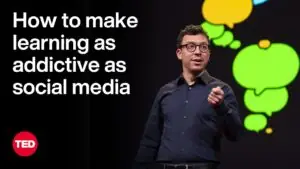
Have you ever wondered which languages are the trickiest to learn? Well, there’s no definitive answer, as it largely depends on your native language and familiarity with certain linguistic features. But there are some languages that many learners find exceptionally challenging.

✅ AI Essay Writer ✅ AI Detector ✅ Plagchecker ✅ Paraphraser
✅ Summarizer ✅ Citation Generator
Key Takeaways
- Lesser-known languages like Uzbek, with limited resources, can be hard to learn but are highly appreciated by native speakers.
- Agglutinative languages like Turkish and Arabic compact a lot of meaning into a few words through prefixes and suffixes.
- Languages with unique features like click consonants or tones, such as Taa/!Xóõ and Thai, can be difficult for those not used to these sounds.
Exploring the Lesser-Known Languages
Uzbek is an interesting pick for language learners who want to connect with the culture of Uzbekistan. The agglutinative nature of the language, where words are formed by stringing together various morphemes, can be a bit challenging. Moreover, finding good learning materials for Uzbek is not easy. But here’s a pro tip: locals immensely appreciate foreigners who take an interest in their language and culture!
Another language that stands out is Ch’orti’ Maya. With virtually no resources available, learners need to create their own curriculum. This language is surely for those seeking an adventure in language learning.
Agglutination: A Different Beast
Learning Turkish, for example, might seem like a daunting task due to its agglutinative structure, but it can be an excellent stepping stone for other agglutinative languages like Uzbek. Turkish is known for its efficient use of words. For example, the English phrase “I was going to go to the store” can be said in just two words in Turkish: “Dükkana gidecektim”. Pretty cool, right?
However, while Arabic is also an agglutinative language, it’s less so compared to Turkish. Arabic mostly uses prefixes and suffixes to convey meaning, but not to the extent of Turkish.
Let’s not forget Hungarian. Some learners believe it’s even harder than Chinese! With a unique grammar structure and vocabulary, Hungarian surely earns a spot on this list.
Navigating Unique Sounds
Taa/!Xóõ, spoken by Khoisan tribes in Namibia and Botswana, is renowned for its click consonants, making up 82% of the language. And guess what? It’s not just the clicks; it’s also a tonal language! This combo makes Taa/!Xóõ one of the most complex languages phonetically.
Thai, with its unique alphabet and intricate tonal system, can also be a handful, especially for speakers of non-tonal languages. The tones in Thai can change the meanings of words drastically, so they are crucial to master.
Conclusion
Languages can be tricky for various reasons, be it agglutinative structures, click consonants, tones, or simply a lack of learning resources. But that’s what makes language learning an adventure! Embrace the challenges, connect with new cultures, and discover the joys of learning something out of the ordinary. And remember, no matter how difficult a language may seem, with passion and dedication, you can conquer it!
Read also:
Language Learning Tips of the Month: Becoming a Fluent Learner and Speaker
The Power of Personal and Unconventional Triggers in Language Learning
One Student, Four Languages: How Real is A Journey To Multilingual Mastery
Follow us on Reddit for more insights and updates.





Comments (0)
Welcome to A*Help comments!
We’re all about debate and discussion at A*Help.
We value the diverse opinions of users, so you may find points of view that you don’t agree with. And that’s cool. However, there are certain things we’re not OK with: attempts to manipulate our data in any way, for example, or the posting of discriminative, offensive, hateful, or disparaging material.